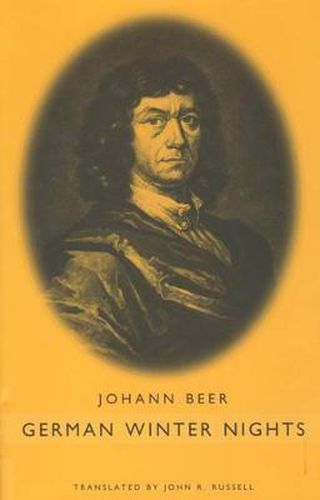Readings Newsletter
Become a Readings Member to make your shopping experience even easier.
Sign in or sign up for free!
You’re not far away from qualifying for FREE standard shipping within Australia
You’ve qualified for FREE standard shipping within Australia
The cart is loading…






Beer’s German Winter Nights (1681) is one of the watermarks of German Baroque literature. Although it clearly owes much in motif and style to Grimmelshausen’s picaresque novel, Simplicius Simplicissimus, its blend of outrageous student humor and unprecedented realism mark it as a uniquely readable work that has appeal even today. Beer was primarily known as a musician and composer. But in the last ten years, he has been given his due as a major prose writer of the German Baroque. In more recent criticism he has been perceived increasingly not merely as a naive, native talent but as a relatively sophisticated writer who, well read in literary theory and in the literature of the time, satirized contemporary society with a certain moralistic rigor. Increasingly the importance of Beer’s moralistic message, obscured somewhat by the outlandish comic genius of German Winter Nights and its sequel Die kurtzweiligen Sommer-Tage (1682, translated as Summer Tales), has been seen as his prime motivation in writing the novels, and the idea of a carefree, witty, pun-loving writer has given way to a view of a young man obsessed by questions of morality, sexuality, and the emerging (threatening) role of women in society. This is the first English translation of Beer’s comic novel.
$9.00 standard shipping within Australia
FREE standard shipping within Australia for orders over $100.00
Express & International shipping calculated at checkout
Beer’s German Winter Nights (1681) is one of the watermarks of German Baroque literature. Although it clearly owes much in motif and style to Grimmelshausen’s picaresque novel, Simplicius Simplicissimus, its blend of outrageous student humor and unprecedented realism mark it as a uniquely readable work that has appeal even today. Beer was primarily known as a musician and composer. But in the last ten years, he has been given his due as a major prose writer of the German Baroque. In more recent criticism he has been perceived increasingly not merely as a naive, native talent but as a relatively sophisticated writer who, well read in literary theory and in the literature of the time, satirized contemporary society with a certain moralistic rigor. Increasingly the importance of Beer’s moralistic message, obscured somewhat by the outlandish comic genius of German Winter Nights and its sequel Die kurtzweiligen Sommer-Tage (1682, translated as Summer Tales), has been seen as his prime motivation in writing the novels, and the idea of a carefree, witty, pun-loving writer has given way to a view of a young man obsessed by questions of morality, sexuality, and the emerging (threatening) role of women in society. This is the first English translation of Beer’s comic novel.